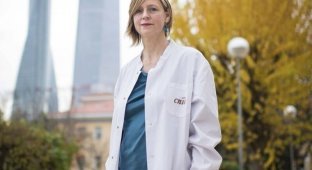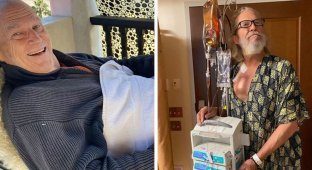Trials of the first lung cancer vaccine have begun in seven countries (4 photos)
Lung cancer is the most common cancer in the world, claiming 1.8 million lives every year. Traditionally, it is treated with surgery, radiation therapy and chemotherapy. But now there is an mRNA vaccine that is designed to help the immune system defeat the disease. BNT116 is already being tested in humans at 34 research centers in seven countries. 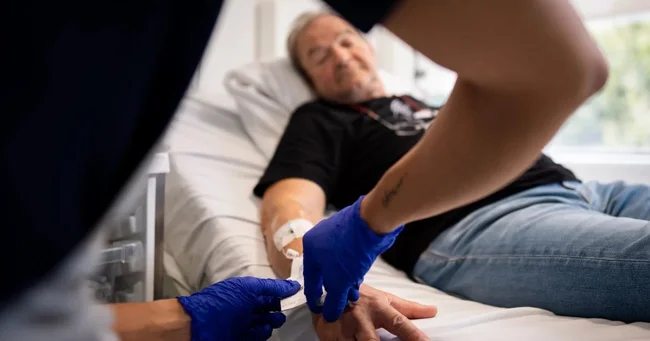
The drug is intended to treat non-small cell lung cancer, the most common form of the disease.
The world has been introduced to mRNA vaccines during COVID-19. The drug from German company BioNTech uses messenger RNA (mRNA) to stimulate the immune system to recognize and destroy cancer cells.
Professor Siou Ming Li, an oncologist at University College London, said: "It targets specific antigens on the cancer cell. This technology is the next big thing in cancer treatment." 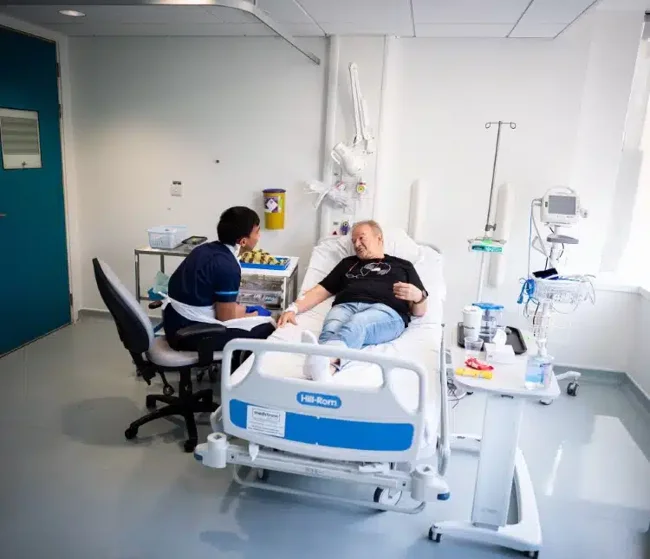
Chief Nurse Kinji Nama with study participant Janusz Racz
Clinical trials involving around 130 patients are being conducted in the US, UK, Germany, Hungary, Poland, Turkey and Spain.
BNT116 is one of around 60 mRNA vaccines currently being tested. This has been made possible by the success of COVID-19 vaccines, which has attracted a lot of attention and funding. 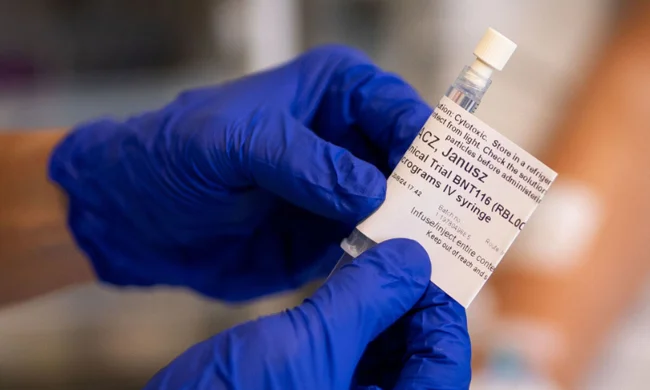
67-year-old scientist Janusz Racz became the first person in the UK to receive the vaccine. According to The Guardian, he was given six consecutive injections, five minutes apart, each containing a specific mRNA encoding the vaccine.
He will be vaccinated every week for six weeks, then every three weeks for 54 weeks. Racz, who was diagnosed with lung cancer in May, remains hopeful of recovery.
"I thought it over and decided to take part in the study. I hope it will protect me from cancer cells. I also thought that my participation will help other people in the future and make this therapy more accessible to everyone. As a scientist, I understand that science can only advance with the active participation of people in such programs." 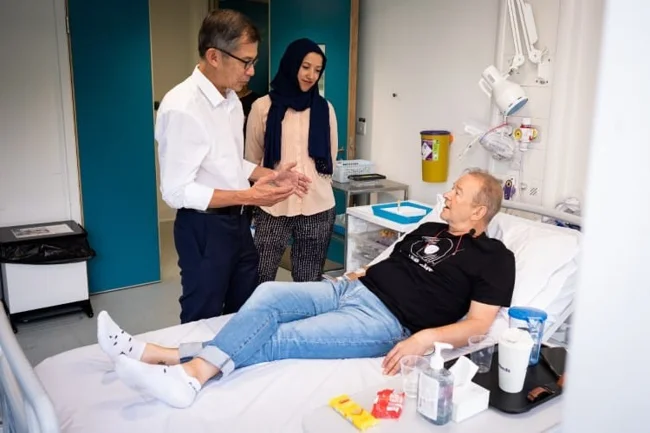
Professor Siou Ming Lee and Dr. Sarah Benafif talking to a patient













